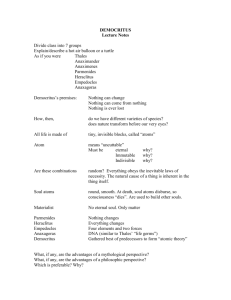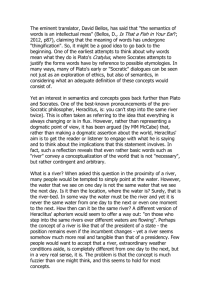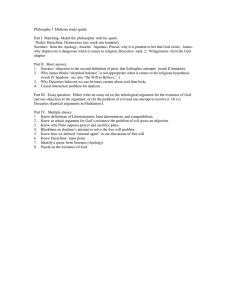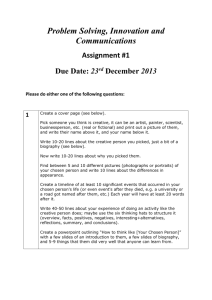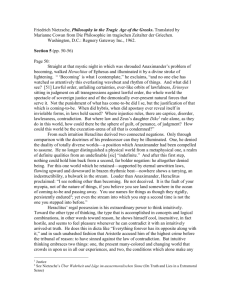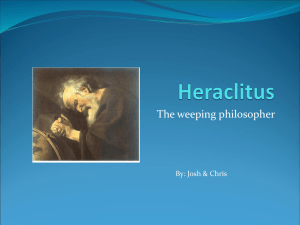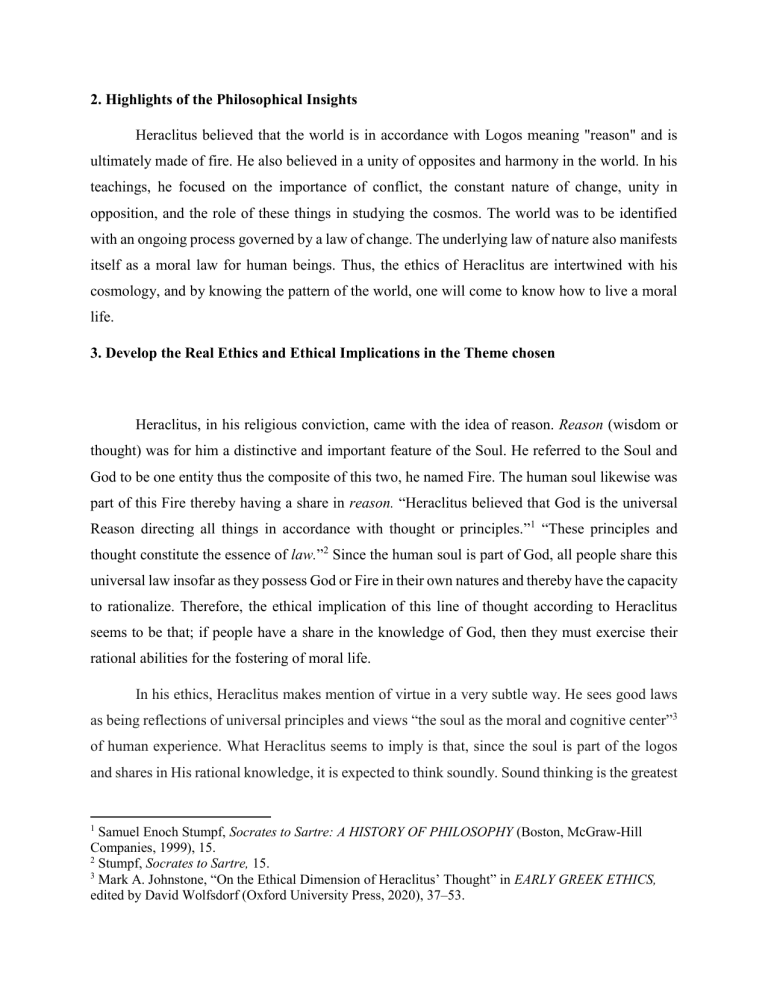
2. Highlights of the Philosophical Insights Heraclitus believed that the world is in accordance with Logos meaning "reason" and is ultimately made of fire. He also believed in a unity of opposites and harmony in the world. In his teachings, he focused on the importance of conflict, the constant nature of change, unity in opposition, and the role of these things in studying the cosmos. The world was to be identified with an ongoing process governed by a law of change. The underlying law of nature also manifests itself as a moral law for human beings. Thus, the ethics of Heraclitus are intertwined with his cosmology, and by knowing the pattern of the world, one will come to know how to live a moral life. 3. Develop the Real Ethics and Ethical Implications in the Theme chosen Heraclitus, in his religious conviction, came with the idea of reason. Reason (wisdom or thought) was for him a distinctive and important feature of the Soul. He referred to the Soul and God to be one entity thus the composite of this two, he named Fire. The human soul likewise was part of this Fire thereby having a share in reason. “Heraclitus believed that God is the universal Reason directing all things in accordance with thought or principles.”1 “These principles and thought constitute the essence of law.”2 Since the human soul is part of God, all people share this universal law insofar as they possess God or Fire in their own natures and thereby have the capacity to rationalize. Therefore, the ethical implication of this line of thought according to Heraclitus seems to be that; if people have a share in the knowledge of God, then they must exercise their rational abilities for the fostering of moral life. In his ethics, Heraclitus makes mention of virtue in a very subtle way. He sees good laws as being reflections of universal principles and views “the soul as the moral and cognitive center”3 of human experience. What Heraclitus seems to imply is that, since the soul is part of the logos and shares in His rational knowledge, it is expected to think soundly. Sound thinking is the greatest 1 Samuel Enoch Stumpf, Socrates to Sartre: A HISTORY OF PHILOSOPHY (Boston, McGraw-Hill Companies, 1999), 15. 2 Stumpf, Socrates to Sartre, 15. 3 Mark A. Johnstone, “On the Ethical Dimension of Heraclitus’ Thought” in EARLY GREEK ETHICS, edited by David Wolfsdorf (Oxford University Press, 2020), 37–53. virtue and wisdom: “to speak the truth and to act on the basis of an understanding of the nature of things (B112)”4. Such an understanding can result only from an ability to interpret the language of nature. The proper understanding allows one to live and act in a harmonious way. In relation to sound thinking as a product of a rational soul, Heraclitus in “Fragment 117 reinforces the thought that the soul is the seat of cognition, and also the idea that it can be in better or worse states.”5 To justify this, Heraclitus believed that the soul, since it shares in the Fire which is God, it cannot be wet or moistened for that will kill it. For him, the soul was dry and it was death for it to become water. He adopts this cosmic view to show how drunkenness affects morality of a person. Heraclitus traces the source of the drunk’s cognitive impairment – which leaves him stumbling, unaware of where he goes – specifically to the condition of his soul, which is moistened by the drink he has consumed. Thus, Heraclitus disapproves drinking because it impedes the cognitive power of the soul. When the cognition is impeded, sound thinking is disrupted. Disruption of sound thinking leads to lose of self-control which will eventually lead to immoral human behavior. In the recovered fragments of his ethics, Heraclitus also stresses the importance of human understanding and the impacts of its lacking as one of the pillars of living a moral life. Heraclitus believed that people live badly because they do not understand the world in which they live in. For him, the world which is governed by the logos is common to all and should be comprehended by all. However, people are reluctant to understand it thereby accommodating preferential ignorance. On this regard, Mark A, Johnstone in his analysis of Heraclitus held that, Heraclitus “believed most people live badly because they are oblivious to, and at odds with, the true nature of the world in which they live, and that wisdom consists in understanding this world. Heraclitus denounced both the masses and famous figures for their ignorance, gullibility, and lack of insight.” Therefore, Heraclitus was urging his audience to get rid of their complacency so as to live morally. 4. Observations and Comments on, Questions to, Critique of the Ethics presented by Philosopher or philosophical school. Laura Rosella Schluderer, “Speaking and Acting the Truth: The Ethics of Heraclitus”, (University of Florence-Pisa, méthexis 29, 2017) 1-19. 5 Mark A. Johnstone, “On the Ethical Dimension of Heraclitus’ Thought”, 37–53. 4 The gathering of the writings of Heraclitus has only resulted in a fragmented piece of work that has made it difficult to ascertain the true nature of his ethics. Despite that being the case, the recovered fragments seem more cosmological than ethic. From a subjective point of view, the notion that Heraclitan ethics are embedded in his cosmology are not substantiated by examples that reflect practical daily life of his day. Rather, they are far fetched and this makes it difficult to apply his ethical thought in the contemporary society. If Heraclitus indeed worked on ethics as a discipline or branch of his philosophy, there is reason to believe that, those ideas could have survived such as some of his doctrines that include, flux and fire, conflict of ethics, and logos have also survived. However, the idea that his ethics is understood in the light of his cosmology lives us with two speculations: Either firstly, if what is referred to as Heraclitan ethics is understood in his cosmology, then he was too utopian and was less considerate of the subject matter of ethics which is the human being. Secondly, he was too metaphorical and thus he failed to appeal to the human person. On the contrary, it is plausible to note that Heraclitus believed we ought to strive for wisdom and in sight, this is because he believed that becoming wise improves the soul. Acquiring wisdom removes ignorance of the world in which one lives. The value he places on wisdom and the soul anticipates Socrates, and Aristotle. Conclusion
